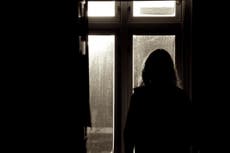Women being arrested and criminalised after reporting violence and abuse, say MPs
Thousands of women each year needlessly arrested and released without charge, report warns

Your support helps us to tell the story
From reproductive rights to climate change to Big Tech, The Independent is on the ground when the story is developing. Whether it's investigating the financials of Elon Musk's pro-Trump PAC or producing our latest documentary, 'The A Word', which shines a light on the American women fighting for reproductive rights, we know how important it is to parse out the facts from the messaging.
At such a critical moment in US history, we need reporters on the ground. Your donation allows us to keep sending journalists to speak to both sides of the story.
The Independent is trusted by Americans across the entire political spectrum. And unlike many other quality news outlets, we choose not to lock Americans out of our reporting and analysis with paywalls. We believe quality journalism should be available to everyone, paid for by those who can afford it.
Your support makes all the difference.Thousands of women are needlessly arrested and detained in custody each year before being released without charge, MPs have said.
A report by the All Party Parliamentary Group on Women in the Penal System says this includes cases where women were victims of crimes, or were arrested while visibly distressed, as well as when there were fears about their mental health.
Researchers found almost 100,000 arrests of women are made in England and Wales every year - with 37,000 estimated to lead to no charges being pressed.
Many of the needless arrests were linked to incidents in the home where women had sought to defend themselves after being subjected to violence or abuse.
Some 221 arrests of women were for alleged incidents listed as domestic abuse or a dispute with a relative - with more than 60 per cent ending in no charges being pressed against the woman.
The parliamentary group, which consists of cross-party peers and MPs, warned police resources are wasted by the unnecessary arrests of women.
Frontline service providers have frequently warned that women in prison are often victims of much more serious offences than the ones for which they have been convicted. A previous report from the Prison Reform Trust found that 80 per cent of women in jail were inside for non-violent offences.
Baroness Corston, another co-chair of the group, said: “Stopping domestic abuse is and ought to be a police priority, but our inquiry has highlighted the need for a nuanced approach that keeps women safe without sweeping them into the criminal justice system.”
Leading anti-violence organisations say while both men and women are subjected to domestic abuse, women are considerably more likely to experience recurrent and severe abuse and violence. A woman is killed by a current or ex-partner every four days in England and Wales.
Jackie Doyle-Price, the Conservative MP who co-chairs the parliamentary group, said: “Putting women in contact with services that can help them is a smarter use of police resources that helps to reduce crime. We encourage forces to examine the arrest data they hold to improve practice and protect more women from harm.”
The report analysed anonymised arrest data from five police forces in England and Wales - with the reports providing in-depth information on more than 640 arrests.
Debbie Abrahams, a Labour MP who is also a chair, added: “There is more to do to ensure that women are given the support they need without being criminalised.
“Getting this right would help women to lead happier and healthier lives while enabling police forces to spend more time investigating serious crime.”
The report called for forces to look at the gender and race of those women arrested - warning government data shows black women are twice as likely to find themselves arrested as white women.
It comes afterThe Independent recently reported women are almost twice as likely as men to have their criminal records disclosed when applying for a job, and to suffer “sustained stigma” from employers.
The report, carried out by criminal justice charity Unlock, says that women are more likely to have their criminal record revealed in a DBS check when applying for a job, because female-dominated sectors, such as care work and education, require more checks.
Researchers said that women were less likely than men to have a criminal record, and that women with convictions were often defending themselves from violent partners subjecting them to domestic abuse, or committed the crime to feed their children.
Dr Rachel Tynan, of Unlock, told The Independent that women with criminal records are sometimes “judged more harshly” by employers when applying for jobs.
She said: “It is not that men aren’t stigmatised, but men and women are stigmatised in different ways. There is a narrative for the bad boy gone good. That does not exist for women.
“Popular culture doesn’t tell the story of the routes to redemption for women like it does for men.”


Join our commenting forum
Join thought-provoking conversations, follow other Independent readers and see their replies
Comments